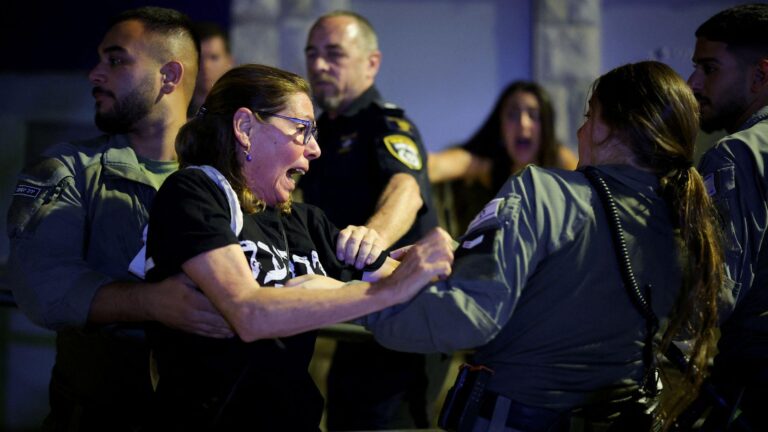Germany’s Social Democratic Party (SPD) finds itself at a crossroads as a renewed push for militarization ignites internal divisions within the traditionally pacifist party. The debate, intensified by growing geopolitical tensions and increased defense spending proposals, is testing the SPD’s unity and challenging its long-standing stance on military engagement. As the party grapples with balancing security concerns and its core values, the unfolding rift signals a pivotal moment for Germany’s political landscape.
Renewed Militarization Deepens Divisions Within Germany’s SPD
The renewed emphasis on militarization within Germany’s Social Democratic Party (SPD) has ignited heated debates, exposing fault lines that challenge party unity. Proponents argue that boosting defense capabilities is essential amid rising geopolitical tensions across Europe, particularly in response to increased assertiveness from Russia. They emphasize the need for modernized armed forces and enhanced NATO cooperation to safeguard German interests and fulfill international commitments. This camp largely supports increased defense spending and more robust military deployments abroad.
Conversely, a significant faction within the SPD remains wary of escalating militarism, fearing it undermines the party’s traditional commitment to diplomacy and social welfare. Critics highlight concerns over diverting resources from domestic priorities such as education and healthcare, arguing that militarization risks deepening social inequalities. Their position includes calls for:
- Strengthening peaceful conflict resolution mechanisms
- Promoting disarmament initiatives
- Restricting arms exports to conflict zones
This ideological divide is crystallizing into a contentious debate, raising questions about the SPD’s future direction and coherence ahead of upcoming elections.
| SPD Factions | Key Focus | Position on Militarization |
|---|---|---|
| Defense Advocates | Security & NATO Alignment | Support increased spending |
| Peace-Oriented Members | Social Welfare & Diplomacy | Oppose military escalation |
Analyzing the Political and Social Implications for Germany’s Center-Left
The SPD, Germany’s long-standing center-left party, finds itself at a crossroads as internal divisions deepen over recent calls for increased militarization. While some factions argue that a robust defense posture is essential to uphold national security amid escalating geopolitical tensions, others warn that this shift risks alienating the party’s traditional base, which has historically favored pacifism and social welfare priorities. This ideological rift not only threatens party cohesion but also complicates SPD’s positioning ahead of upcoming elections, where public opinion remains sharply divided on Germany’s role in global military engagements.
The social implications extend beyond party politics, affecting public trust in institutions and sparking broader debates about civic identity and national responsibility. Key generational divides emerge, with younger voters more skeptical of militarization, favoring social programs and climate initiatives instead. Recent polls illustrate this conflict vividly:
| Demographic | Support for Militarization | Support for Social Welfare |
|---|---|---|
| 18-29 years | 35% | 65% |
| 30-49 years | 50% | 50% |
| 50+ years | 65% | 35% |
- Policy tensions risk diluting SPD’s clear messaging.
- Social divides highlight the shifting landscape of German electoral politics.
- Future coalitions may face unprecedented challenges balancing security and social justice agendas.
Recommendations for Navigating Internal Party Conflicts Amid Defense Debates
To effectively manage disputes within party ranks during intense defense policy debates, it is crucial to prioritize transparent communication and foster an environment where diverse viewpoints are respected. Encouraging regular intra-party forums and moderated discussions can help defuse tensions before they escalate, allowing members to voice concerns and find common ground. Emphasizing shared party values related to national security and social responsibility creates a unifying framework, mitigating polarization on sensitive issues such as militarization.
Key strategies include:
- Implementing conflict-resolution workshops tailored to political contexts.
- Encouraging leadership to play a proactive role in mediating disagreements.
- Maintaining open channels for feedback from grassroots members up to senior officials.
- Balancing policy firmness with flexibility to address internal dissent without alienation.
| Approach | Benefit | Potential Challenge |
|---|---|---|
| Facilitated Dialogue Sessions | Builds trust and mutual understanding | Time-consuming to organize regularly |
| Leadership Mediation | Quick conflict containment | Risk of perceived bias |
| Grassroots Involvement | Inclusive policy shaping | Possible dilution of clear messaging |
Key Takeaways
As Germany’s SPD grapples with the contentious shift toward renewed militarization, the party stands at a crossroads between its pacifist roots and the demands of contemporary security challenges. The deepening internal rifts not only highlight the complexity of defense policy in today’s geopolitical landscape but also underscore the broader debate over Germany’s role on the international stage. How the SPD resolves these divisions will significantly shape the country’s future military posture and its position within Europe’s evolving security framework.




